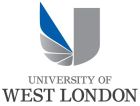Crime
In ordinary language, a crime is an unlawful act punishable by a state or other authority. The term "crime" does not, in modern criminal law, have any simple and universally accepted definition, though statutory definitions have been provided for certain purposes. The most popular view is that crime is a category created by law; in other words, something is a crime if declared as such by the relevant and applicable law. One proposed definition is that a crime or offence (or criminal offence) is an act harmful not only to some individual but also to a community, society or the state ("a public wrong"). Such acts are forbidden and punishable by law.
Society
A society is a group of individuals involved in persistent social interaction, or a large social group sharing the same geographical or social territory, typically subject to the same political authority and dominant cultural expectations. Societies are characterized by patterns of relationships (social relations) between individuals who share a distinctive culture and institutions; a given society may be described as the sum total of such relationships among its constituent of members. In the social sciences, a larger society often evinces stratification or dominance patterns in subgroups.

